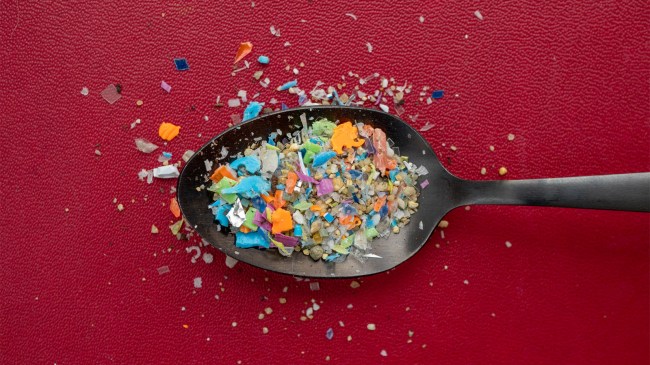
iStockphoto
Environmentalists are constantly talking about how much plastic waste there is in the world, and with good reason. Plastic pollution is, according to one recent report, costing the world at least $1.5 trillion a year in health-related economic losses. Another recent study claims microplastics (MPs) have made indoor air more polluted than the air outside our homes and other buildings.
That study, conducted by researchers at the University of Toulouse in France and published in the journal PLOS ONE, claims indoor air contains more microplastics than the air outside and “that the health impacts of MP inhalation may be more substantial than we realize.”
Using Raman spectroscopy, the researchers studied two types of indoor environments: a residential environment (three apartments – samples from bedrooms, home offices, and living rooms) and a car cabin environment (two different cars – old and new, both with polyester fabric seats). What they found was a median of 528 particles per cubic meter in homes and 2,238 particles per cubic meter in cars. “We inhale thousands of them every day without even realizing it,” they wrote.
Based on that data, the researchers determined that adults inhale about 3,200 large microplastic particles and 68,000 smaller microplastic particles on a daily basis. They also stated that “over 90% of the microplastic particles in indoor air across both homes and cars were … small enough to be inhaled deep into the lungs.”
“Given that people in developed nations spend approximately 90% of their time indoors, including 5% in cars, the potential for inhalation exposure to MPs in indoor environments is significantly higher and warrants attention,” they wrote. (And that doesn’t even count the credit card’s worth of plastic we eat each week, according to a 2022 study.)
Plastic pollution is a big problem
Another recent study published in the Lancet medical journal this week, says 8,000 megatons of plastic waste now pollute the planet and less than 10% of plastic is recycled.
On Tuesday, several nations came together for a 10-day gathering in Geneva, Switzerland to try and come to some agreement for dealing with the worldwide plastic pollution crisis.
“Plastic pollution is damaging ecosystems, polluting our oceans and rivers, threatening biodiversity, harming human health and unfairly impacting the most vulnerable. The urgency is real,” said Luis Vayas Valdivieso, the chair of the negotiating committee.